 Chinese Prescription for Healthcare Providers predicts that China is showing itself to be very innovative in health care by implementing market-based offerings. The TEDA International Cardiovascular Hospital, just outside Beijing, offers six levels of service, ranging from $6.70 to $3,200 per night, as reported in “Hospital Caters to China’s Wealthy and Poor” in The Wall Street Journal or the hospital website. The lowest class of service has patients sharing a small room with other patients while “first class” includes a suite with a private gym, a garden, massage chair and other amenities. Chinese Prescription for Healthcare Providers predicts that China is showing itself to be very innovative in health care by implementing market-based offerings. The TEDA International Cardiovascular Hospital, just outside Beijing, offers six levels of service, ranging from $6.70 to $3,200 per night, as reported in “Hospital Caters to China’s Wealthy and Poor” in The Wall Street Journal or the hospital website. The lowest class of service has patients sharing a small room with other patients while “first class” includes a suite with a private gym, a garden, massage chair and other amenities.
China has an aging population of 1.3 billion to whom the government is struggling to provide health care. It regulates the prices of medicine and subsidizes basic services at public hospitals, but most people do not have western-type insurance and end up paying a major portion of their health care. The stakes are high today to solve the health care problem, and they are getting higher as the population ages.
[…]
A Must-read Guide to the Importance of Web 2.0 and the Knowledge Economy
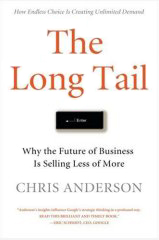 The Long Tail is a watershed book that reflects many of the profound socioeconomic changes wrought by the transition from the Industrial Economy to the Knowledge Economy. The “Long Tail” represents the splintering of the mass market—what is happening, why and how you can thrive in the new era of the niche. Moreover, it shows how the mass market was a temporary phenomenon that developed because niches were not economically viable for producers to address. The Long Tail is a watershed book that reflects many of the profound socioeconomic changes wrought by the transition from the Industrial Economy to the Knowledge Economy. The “Long Tail” represents the splintering of the mass market—what is happening, why and how you can thrive in the new era of the niche. Moreover, it shows how the mass market was a temporary phenomenon that developed because niches were not economically viable for producers to address.
Chris Anderson is editor-in-chief of Wired, and the book has an appreciation for culture, the economics of technology and the importance of innovation. It’s also very well written: Anderson tackles some fairly abstract concepts, but the reader doesn’t trip over them. It’s possible to read the book quickly, but there is plenty of substance for a detailed, reflective reading as well. Difficult to over-recommend!
The Long Tail offers an insightful look into the byte-oriented Knowledge Economy and its movement away from the zero-sum, bits-oriented Industrial Economy—and what this holds for business and culture. The book […]
 Consumer empowerment and disruption are being unleashed by the many-to-many Web. As we’ve been writing for some time, Web 2.0 is giving individuals collective voices that can rival the authority of global enterprises and governments, which is disruptive because it changes the rules. We call it Consumer Empowerment. Blogs, social networking, podcasts, wikis, vlogs and their intermediaries like Technorati, MySpace and iTunes give customers the tools to create and distribute content for free—instantly and globally. When rules change, you can quickly strengthen your market position by understanding and adapting more quickly than competitors. Consumer empowerment and disruption are being unleashed by the many-to-many Web. As we’ve been writing for some time, Web 2.0 is giving individuals collective voices that can rival the authority of global enterprises and governments, which is disruptive because it changes the rules. We call it Consumer Empowerment. Blogs, social networking, podcasts, wikis, vlogs and their intermediaries like Technorati, MySpace and iTunes give customers the tools to create and distribute content for free—instantly and globally. When rules change, you can quickly strengthen your market position by understanding and adapting more quickly than competitors.
Google any specific product, phrase or service, and you will notice that customer content is growing quickly, especially in specific, customer-centric areas that organizations aren’t focused on. Customers contribute customer-relevant content because they are passionate about the subject. Growing “tribes” of individuals connect, collaborate, and become smart very quickly. Threat: large organizations are losing control over the information about their reputations, products and services. Opportunity: adding value to these customer-led conversations can increase your credibility and appeal.
Large organizations attained their market power through efficiency, the hallmark of the […]
Excellent guidebook for succeeding in the online world, including social networking
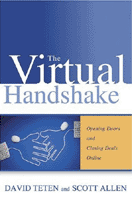 The Virtual Handshake is an immensely valuable book, both as a handbook to the virtual world for the business-oriented person and as a guide to purposeful networking. I was compelled to get it after seeing David Teten speak at a conference because he spoke with authority while explaining new things clearly. Allen and Teten have done a masterful job at writing an interesting book that is full of useful information. Moreover, they succeed at providing a conceptual framework, so the reader can make use of the information. It is also a fun read. The Virtual Handshake is an immensely valuable book, both as a handbook to the virtual world for the business-oriented person and as a guide to purposeful networking. I was compelled to get it after seeing David Teten speak at a conference because he spoke with authority while explaining new things clearly. Allen and Teten have done a masterful job at writing an interesting book that is full of useful information. Moreover, they succeed at providing a conceptual framework, so the reader can make use of the information. It is also a fun read.
As a marketing executive and a management consultant (strategy) since the early 1990s, I have helped to build parts of the virtual world the authors describe. I am very familiar with the topics, and I found the book useful on two key levels:
Conceptual: The virtual world is difficult to understand conceptually because it is boundaryless and serendipitous, and the authors describe what it is enough so you can get to the point: how to interact with it to accomplish what you want. This is extremely important […]
The Knowledge Economy, Ultimate Context for Understanding the Future welcomes you to the Post-Industrial World, which turns past assumptions on their heads.
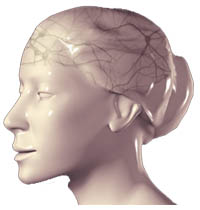 The Knowledge Economy is a post-industrial economy characterized by a highly developed information technology industry along with overproduction and commoditization in industrial and agricultural sectors. Widespread information technology (IT) adoption among producers and consumers enables all market participants to create and share information about all aspects of economic transactions. The creation, packaging and sharing of information is termed “knowledge.” In the Knowledge Economy, information about an underlying good creates most of the good’s differentiated value. The Knowledge Economy is a post-industrial economy characterized by a highly developed information technology industry along with overproduction and commoditization in industrial and agricultural sectors. Widespread information technology (IT) adoption among producers and consumers enables all market participants to create and share information about all aspects of economic transactions. The creation, packaging and sharing of information is termed “knowledge.” In the Knowledge Economy, information about an underlying good creates most of the good’s differentiated value.
Consumer mobilization and engagement in the Knowledge Economy renders many of the Industrial Economy’s rules invalid. In the Industrial Economy, consumers had little information relative to producers, they were isolated from each other, and they had no collective voice. They were at a disadvantage as market participants. The “second stage” of the Internet, “Web 2.0,” facilitates P2P (peer to peer) information sharing, and its tools are free to use and accessible to anyone with an Internet connection. Producers […]
The TransAtlantic Partnership’s Implications for U.S., E.U. Economies summarizes coverage of the EEC International Conference—Talking with the Ambassadors of the World’s Largest Trading Relationship and the CEOs of Four Global Enterprises.
 Three eminent diplomatic leaders and CEOs from Baxter, Financial Dynamics, ITW and Philips briefed Midwest executives on the current status and future directions of the world’s largest trading relationship at the Executives’ Club of Chicago’s International Conference November 15. The half-day program featured several presentations, a CEO panel and a media round table. All speakers sought to impress upon the audience the pivotal importance of the transatlantic alliance for the United States and Europe, and most warned chief executives neither to take it for granted nor to be passive in the face of rising protectionism. Three eminent diplomatic leaders and CEOs from Baxter, Financial Dynamics, ITW and Philips briefed Midwest executives on the current status and future directions of the world’s largest trading relationship at the Executives’ Club of Chicago’s International Conference November 15. The half-day program featured several presentations, a CEO panel and a media round table. All speakers sought to impress upon the audience the pivotal importance of the transatlantic alliance for the United States and Europe, and most warned chief executives neither to take it for granted nor to be passive in the face of rising protectionism.
The fact that the importance of the E.U.—U.S. alliance had to be emphasized brought into sharp relief the relatively sudden rise of Asia as well as the shift from the Industrial Economy to the Knowledge Economy. Both megatrends pose opportunities and threats for the world’s largest economies and enterprises, and […]
At the turn of the 21st Century, converging social, technological and political changes demand profound changes in how organizations relate to their customers. These changes question many of the assumptions on which 20th Century businesses are built. To turn this situation to their advantage, executives need to approach how they create value for their customers, quickly and proactively. They must build a collaborative network of partners to discover, design and deliver differentiated experience to customers.
The new meaning of customer experience Pervasive e-business and global sourcing are creating new centers of excellence for knowledge, services and manufacturing around the world—these clusters of people and companies are technology-enabled, well educated and highly motivated. They will impact incumbents in several ways: 1) they represent new collaborative resources that can add significantly to the enterprise expertise network; 2) they are developing into high-growth consumer markets; 3) they will create new offerings that may change the rules of your business since their companies do not have legacy organizations and cost structures. Web 2.0 is mobilizing customers in high-value mature markets—”Web 2.0″ technologies are user-friendly, collaborative tools and work processes that enable customers to connect with each other and collaborate spontaneously. Examples are […]
The Silver Lining in India’s Infrastructure Gap posits that India’s poor infrastructure face force it to develop more lucrative Knowledge Economy assets.
India is often described as a mixed proposition with respect to its future promise. Although few would question its brilliance as a “burgeoning technology economy,” most people temper this with somber remarks about its lack of “infrastructure.” However, I will argue that India’s limitations with physical infrastructure will actually help India get further ahead than if it didn’t have such problems.
In the popular view (see Indian Raj and its quote of The Houston Chronicle), India’s technology expertise, language skills and legal sensibilities are its trump cards, but this is compromised by its lack of roads, transportation of all kinds, network infrastructure, electricity, and so on. High tech companies have to build their own generators and network infrastructure, and leading providers have created islands of world class capability to assure their global clients that they don’t depend on the country’s infrastructure. China, on the other hand, is generally seen as a paragon of world-class infrastructure, especially physical infrastructure. Woe is India.
[…]
China Analysis and Outlook 2006 reveals an emerging opportunity to rebalance economic and political influence.
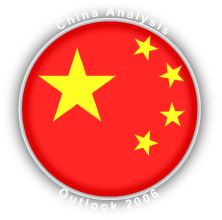 Part II of the 2006 Economic Forecast featuring David Hale (presented Part I) and Lyric Hughes-Hale. Here, I present my notes of Lyric’s talk, followed by my observations. Part II of the 2006 Economic Forecast featuring David Hale (presented Part I) and Lyric Hughes-Hale. Here, I present my notes of Lyric’s talk, followed by my observations.
Background: China’s development and situation are far more complex than U.S. news sources report. It has seen significant economic liberalization during the past 25 years, and it shows every sign of continuing on that trajectory. However, the country is politically conservative. There is no freedom of the press. That said, the authoritarian government may produce reform much more quickly than if China had been democratic because the democratic process often slows reform. China is far more open and engaged on the world stage than it has been in many years. […]
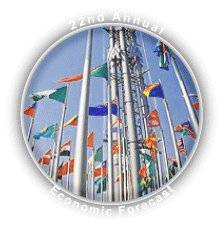
SMA 21st Annual Economic Forecast 2006 is my coverage of the SMA/Harvard Club annual confab featuring David Hale and Lyric Hughes-Hale
The Strategic Management Association and The Harvard Club jointly sponsored the Economic Forecast 2006 featuring David Hale and Lyric Hughes-Hale. David presented his encyclopedic knowledge and perspective on global economic trends, while Lyric shared her insights on China in Part II of the evening (she was the founder of China Online and has focused on China for several years.).
As usual, I present my notes, followed by my insights. Here are my notes from David’s presentation (Part I of the meeting).
[…]
|
|
 Chinese Prescription for Healthcare Providers predicts that China is showing itself to be very innovative in health care by implementing market-based offerings. The TEDA International Cardiovascular Hospital, just outside Beijing, offers six levels of service, ranging from $6.70 to $3,200 per night, as reported in “Hospital Caters to China’s Wealthy and Poor” in The Wall Street Journal or the hospital website. The lowest class of service has patients sharing a small room with other patients while “first class” includes a suite with a private gym, a garden, massage chair and other amenities.
Chinese Prescription for Healthcare Providers predicts that China is showing itself to be very innovative in health care by implementing market-based offerings. The TEDA International Cardiovascular Hospital, just outside Beijing, offers six levels of service, ranging from $6.70 to $3,200 per night, as reported in “Hospital Caters to China’s Wealthy and Poor” in The Wall Street Journal or the hospital website. The lowest class of service has patients sharing a small room with other patients while “first class” includes a suite with a private gym, a garden, massage chair and other amenities.
 The Long Tail is a watershed book that reflects many of the profound socioeconomic changes wrought by the transition from the Industrial Economy to the Knowledge Economy. The “Long Tail” represents the splintering of the mass market—what is happening, why and how you can thrive in the new era of the niche. Moreover, it shows how the mass market was a temporary phenomenon that developed because niches were not economically viable for producers to address.
The Long Tail is a watershed book that reflects many of the profound socioeconomic changes wrought by the transition from the Industrial Economy to the Knowledge Economy. The “Long Tail” represents the splintering of the mass market—what is happening, why and how you can thrive in the new era of the niche. Moreover, it shows how the mass market was a temporary phenomenon that developed because niches were not economically viable for producers to address. Consumer empowerment and disruption are being unleashed by the many-to-many Web. As we’ve been writing for some time, Web 2.0 is giving individuals collective voices that can rival the authority of global enterprises and governments, which is disruptive because it changes the rules. We call it Consumer Empowerment. Blogs, social networking, podcasts, wikis, vlogs and their intermediaries like Technorati, MySpace and iTunes give customers the tools to create and distribute content for free—instantly and globally. When rules change, you can quickly strengthen your market position by understanding and adapting more quickly than competitors.
Consumer empowerment and disruption are being unleashed by the many-to-many Web. As we’ve been writing for some time, Web 2.0 is giving individuals collective voices that can rival the authority of global enterprises and governments, which is disruptive because it changes the rules. We call it Consumer Empowerment. Blogs, social networking, podcasts, wikis, vlogs and their intermediaries like Technorati, MySpace and iTunes give customers the tools to create and distribute content for free—instantly and globally. When rules change, you can quickly strengthen your market position by understanding and adapting more quickly than competitors. The Virtual Handshake is an immensely valuable book, both as a handbook to the virtual world for the business-oriented person and as a guide to purposeful networking. I was compelled to get it after seeing David Teten speak at a conference because he spoke with authority while explaining new things clearly. Allen and Teten have done a masterful job at writing an interesting book that is full of useful information. Moreover, they succeed at providing a conceptual framework, so the reader can make use of the information. It is also a fun read.
The Virtual Handshake is an immensely valuable book, both as a handbook to the virtual world for the business-oriented person and as a guide to purposeful networking. I was compelled to get it after seeing David Teten speak at a conference because he spoke with authority while explaining new things clearly. Allen and Teten have done a masterful job at writing an interesting book that is full of useful information. Moreover, they succeed at providing a conceptual framework, so the reader can make use of the information. It is also a fun read. The Knowledge Economy is a post-industrial economy characterized by a highly developed information technology industry along with overproduction and commoditization in industrial and agricultural sectors. Widespread information technology (IT) adoption among producers and consumers enables all market participants to create and share information about all aspects of economic transactions. The creation, packaging and sharing of information is termed “knowledge.” In the Knowledge Economy, information about an underlying good creates most of the good’s differentiated value.
The Knowledge Economy is a post-industrial economy characterized by a highly developed information technology industry along with overproduction and commoditization in industrial and agricultural sectors. Widespread information technology (IT) adoption among producers and consumers enables all market participants to create and share information about all aspects of economic transactions. The creation, packaging and sharing of information is termed “knowledge.” In the Knowledge Economy, information about an underlying good creates most of the good’s differentiated value. Three eminent diplomatic leaders and CEOs from Baxter, Financial Dynamics, ITW and Philips briefed Midwest executives on the current status and future directions of the world’s largest trading relationship at the Executives’ Club of Chicago’s International Conference November 15. The half-day program featured several presentations, a CEO panel and a media round table. All speakers sought to impress upon the audience the pivotal importance of the transatlantic alliance for the United States and Europe, and most warned chief executives neither to take it for granted nor to be passive in the face of rising protectionism.
Three eminent diplomatic leaders and CEOs from Baxter, Financial Dynamics, ITW and Philips briefed Midwest executives on the current status and future directions of the world’s largest trading relationship at the Executives’ Club of Chicago’s International Conference November 15. The half-day program featured several presentations, a CEO panel and a media round table. All speakers sought to impress upon the audience the pivotal importance of the transatlantic alliance for the United States and Europe, and most warned chief executives neither to take it for granted nor to be passive in the face of rising protectionism. Part II of the 2006 Economic Forecast featuring David Hale (presented Part I) and Lyric Hughes-Hale. Here, I present my notes of Lyric’s talk, followed by my observations.
Part II of the 2006 Economic Forecast featuring David Hale (presented Part I) and Lyric Hughes-Hale. Here, I present my notes of Lyric’s talk, followed by my observations.